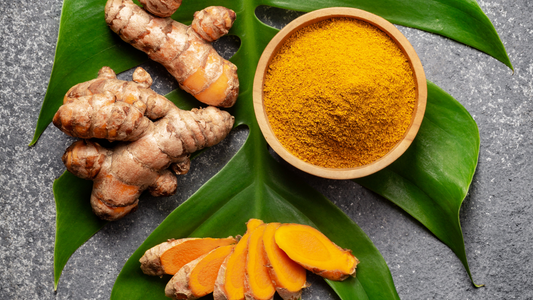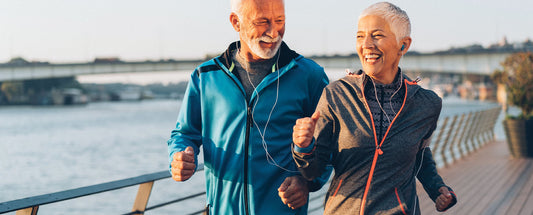When You’re Fit You Don’t Feel Old

As our working lives come to an end, life can start to take an exciting turn. The next chapter has a lot to offer – travel, time to enjoy the grand children, new hobbies, new friends, some long awaited “me time”, no rush hour…
Just because we are getting older, doesn’t mean we need to slow down. Good health will enable us to get the most out of this time, and one of the best ways to maintain good health is with regular exercise. Regular exercise has been shown to:
- Improve insulin sensitivity, keeping our blood sugar levels healthy and lowering our risk of developing type 2 diabetes;
- Maintain normal blood pressure;
- Maintain healthy cholesterol and triglyceride levels;
- Reduce the risk of a heart attack and other chronic diseases;
- Build strong healthy bones and lower the risk of falls
- Recover better after periods of illness or bed rest
- Manage our weight
- Improve our psychological wellbeing
- Improve overall general well being (more energy, a better mood, better sleep, stress reduction etc.)
In addition to these health benefits, researchers are learning that physical activity can also affect the risk of cancer. There is convincing evidence that physical activity is associated with a reduced risk of cancers of the colon and breast. Several studies also have reported links between physical activity and a reduced risk of cancers of the prostate, lung, and lining of the uterus (endometrial cancer).
Speaking to a healthcare professional before you begin any exercise program is always recommended, but once you have decided on a course of action, the sky really is the limit and you could find yourself fitter and in better health than ever before.
Staying active doesn’t only provide the benefits mentioned above. Picking the right exercises will also help to maintain balance, mobility, agility and co-ordination into your later years. Exercises that replicate everyday activities will offer many benefits in this regard, whilst strength training will help to maintain optimal muscle and bone strength. A mixture of exercises that promote strength, mobility, co-ordination, balance and cardiovascular fitness is optimal and a qualified exercise physiologist or personal trainer will help you to develop a program that is just right for you. Warming up and cooling down are vital to help prevent injury, and don’t forget to stretch! Exercises that promote flexibility will help to keep you mobile for much longer.
Exercises to Promote Strength
Exercises which promote strength are many and varied and will often see you utilising either some hand held weights or your own body weight. If you are working out at the local gym then you may also like to use some of the machines on offer – speak to one of the trainers first to make sure you are using the machines correctly, as incorrect use may result in an injury. Strength exercises will usually isolate muscle groups such as those in the shoulders or thighs and should be done at least twice per week for best results.
Frank Caruso has developed a strength training exercise video which you can do in the comfort of your own home. The program can be viewed in this blog or on the Caruso’s Youtube channel.
These exercises have been designed to assist with strength training using your own body weight and will take just 20 minutes of your time. Start by doing them at your own pace and slowly build up so that you are able to perform them at least a few times each week. Don’t forget to check with your doctor first and if you have any trouble with any of the exercises, please seek the advice of a qualified personal trainer or exercise physiologist. Someone who is qualified will be able to help you out with correct technique and balance, or help you with some alternatives if you are finding these exercises too difficult.
Exercises to Promote Balance and Co-ordination
Believe it or not, golf is actually a really great game to play to help to promote balance, co-ordination and agility. Stability of posture through the golf swing requires balance and core strength. Balance is also practiced as you bend over to pick up balls and crouch down to check the logistics of a putt. Hand eye and general body co-ordination is trained as you are hitting the ball, and the muscles which stabilise posture are exercised as you carry your bag around the course.
Other exercises to help improve balance and core stability include canoeing, kayaking or paddle boarding, surfing, cycling, boxing and bowling. Activities that may help to promote co-ordination include tennis, squash, cricket, softball and dancing. These types of activities are recommended to be done at least once per week for optimal results.
Exercises to Promote Cardiovascular Fitness
Cardiovascular (aerobic) exercise is the most beneficial form of exercise for helping to maintain healthy blood pressure, blood sugar and cholesterol levels. It will also help to promote oxygen flow to the muscles and therefore increase energy.
Any activity that gets your heart rate up will be promoting cardiovascular fitness and a healthy heart. Try to incorporate some kind of aerobic exercise into your routine at least two to three times per week for optimal benefits. It may take a while to build up your endurance levels. Start out by doing 5 – 10 minutes at a time and try to increase this slowly over the course of about a month until you are doing about 30 minutes of aerobic exercise three times per week.
Some examples of cardiovascular or aerobic exercise include water aerobics, brisk walking (golf or walking the dog), hiking, tennis, cycling, swimming and dancing. Even a big day in the garden or washing the car can count as cardiovascular exercise.
Exercises that Promote Flexibility and Mobility
Being flexible and maintaining supple joints will aid in overall mobility and keep you active for much longer. Some examples of exercises which promote flexibility include yoga, pilates and tai chi.
Rest and Fuel
Set aside one or two days per week as rest days. This will help your body to recover after all of that activity! Eating a diet high in fresh fruits and vegetables, plenty of fresh protein and some healthy fats from nuts, seeds and avocados will ensure that your muscles and bones are getting all of the nutrients they need to keep up with you. Drinking at least 1.5 litres of fresh, clean water daily will also help to maintain hydration and make sure your body is ready to do it all again tomorrow!
Remember, the best exercise program is one that is not only tailored to you, but one that you will enjoy and look forward to doing. Combining indoor and outdoor activities will keep things varied and interesting, and that will keep you motivated, active and healthy well into the golden years.



